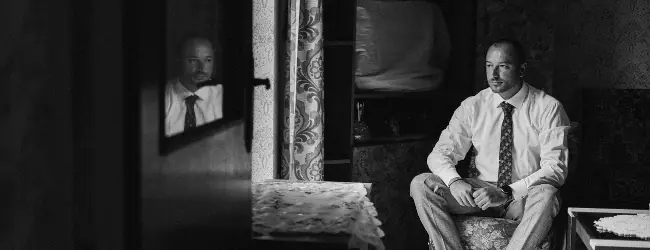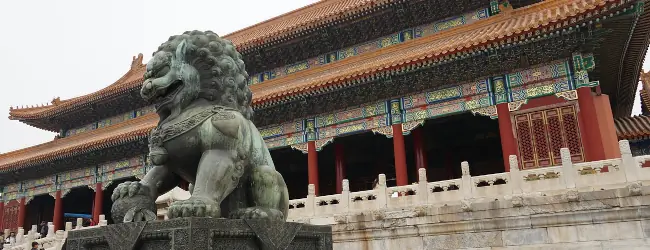After I wrote the previous article about anxiety, I finally understood what causes it. Anxiety is one form of value confusion, so we can let go of it. Today, I will explain the mental logic of anxiety and how to solve it.
How to eliminate anxiety
Sometimes, we have anxiety. Anxiety is a risk that could happen but has not happened yet. There would be many anxieties, such as losing money, losing our lives, wasting time, or missing opportunities.
Those anxieties exhaust us. Although we want to reduce them, it is hard in many cases because there is no way to solve those risks. That causes the loop of thinking endlessly about how to deal with it: “How should I do if it happens?” “I cannot apply this way due to this problem.” “I cannot also take another way due to this factor.” “It would ruin me. I must avoid it and deal with it.” Then, return to the first thought and loop.

If we have a highly empathic nature, we tend to have more anxiety. In other words, less empathic people tend not to suffer mentally. They sometimes say, “Don’t be so nervous,” but it usually doesn’t work because we cannot stop it. It is nonsense to say “stop worrying” to people who cannot stop worrying. It is the same as saying “stand up” to those who don’t have legs.
That is why we need another way, based on mental logic, to solve our anxiety.
In that case, the mental logic behind the anxiety might solve the problem. If we understand it, we will let go of unnecessary worries. I will explain it below.
Confusion about values creates unnecessary anxieties
The logic is simple. Confusion about values creates unnecessary anxieties. We have anxiety when we value unnecessary things.
What creates anxiety is empathy. Empathy is for the sake of helping weak people. If we find weak people, we naturally feel like giving our hands to them due to empathy. After helping them, their gratitude and happiness make us happy. That happiness becomes our mental reward.

On the other hand, if we try to help stronger people, we cannot receive enough mental rewards because they are not grateful to us. That is why helping stronger people often exhausts us.
An example of childcare
Let me explain an example to make it easier to understand. Assume we have highly empathic natures.
Let’s assume the following situation: a baby is before us. We take care of him.
Then, let’s think about this question: Is the baby a weak person?
The answer is sometimes yes, but sometimes no.

Physically speaking, the baby is weak. Perhaps you have no doubt. He cannot live alone without support, such as eating, keeping warm, or disposing of body waste.
The case of the emperor’s son
However, socially speaking, the baby could be stronger than us. To explain it, let’s see the following situations.
Imagine that the baby is an emperor’s son. Everyone wants to take care of the baby because it is an honor. In this case, we tend to lose our energy and have more anxiety because the baby is not weak socially. In other words, this is the case of helping stronger people for us.
Empathic people are sensitive to risk and uninterested in social success. That allows empathic people to be willing to help weak people, even without social praise.

In this case, empathic people tend to feel only anxiety because they are not interested in social praise. People will punish us if we fail to care for the emperor’s son. If we succeed, people will praise us. Such praise doesn’t motivate us. That is why we only have anxiety.
Even if he is not the emperor’s son, a baby is sometimes socially stronger than us because many people value babies. That is why we sometimes have anxiety or the rewardlessness of taking care of them.
Perhaps it is the reason for the abuse of babysitters. Abuse by babysitters is a problem in many countries. Babysitters are often low-status. On the other hand, the babies are often people of higher status. That creates babysitters’ stress not to fail and unrewarded minds. That causes anger toward the babies.
The case of an abandoned child
Then, imagine another situation: the baby was abandoned by everyone. Everyone ignores or tries to kill the baby for social reasons, but it doesn’t make sense to us.
For example, all the people around us might say with hate, “The baby is the son of the second empress. He will bring conflicts to this empire, so he should die.” or “He was a baby of a woman of low status, so we should not take care of him.” No one wants to take care of him.

In this case, we feel like helping the baby because he is weak. Our empathy gives us the energy to give our hands to him.
This situation provides us with mental comfort because we are allowed to fail, even without social praise. No one cares about his life. That means we never lose or are accused of anything, even if we fail to help him.
In addition, that situation allows us to show our honest love because there is no need to deceive him about ourselves. We can live as we are. That frees us from the stress of trying to be another brilliant person. That allows us to love him as we are.
Anxieties indicate unnecessary things or ways of life
That is why the confusion about values creates anxiety. We have anxiety when we value unnecessary things. “Unnecessary” means actions to help stronger people.
In other words, anxieties indicate all unnecessary things or ways of life.
For example, if we have anxiety about money, it indicates we don’t need such an amount of money. The amount we need should be lower. If we can be aware of it, we are free from anxiety because we naturally prioritize it. That allows us to sacrifice other more worthless things willingly.
If we have highly empathic natures, we know we don’t need so much money, even if we want to help weak people. Even if we can help more weak people with more money, we never feel anxiety due to a lack of it.

In the case of child care, if we know many people are willing to care for the child, the more highly empathic people tend to feel anxieties about child care. In that case, we can understand we can leave it to someone else who wants to do it, even partially.
Even if no one wants to care for the baby, it is no problem. We can feel the energy of empathy to look after him.
It is better to distinguish whether we are trying to help stronger people. That distinction will provide us with an appropriate place to contribute. In other words, that tells us what to let go of.
Conclusion
The above is the mental logic behind the anxiety.
We have anxiety when we value unnecessary things. In other words, trying to protect unnecessary areas causes it.
This logic might help us let go of unnecessary worries.
Thank you for reading this article. I hope to see you in the next one.


